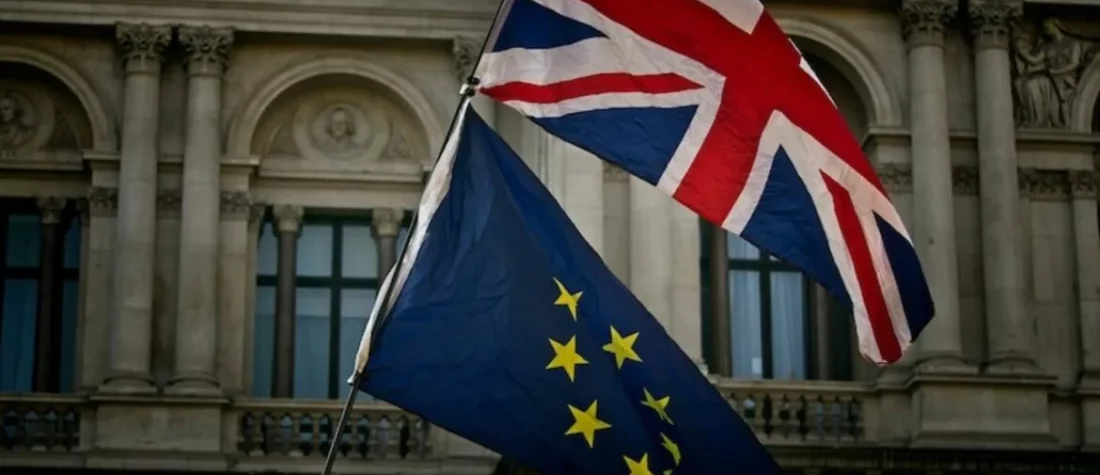Earlier this year, the Commission published its Corporate Sustainability Due Diligence proposal, setting new rules for companies importing certain commodities, including palm oil, soy and coffee, into the EU. The objective is to tighten rules around commodities that are accused of links to deforestation.
The proposal will now be taken up by my colleagues in the European Parliament. As usual, hundreds of amendments will be tabled by dozens of MEPs – each with his or her own ideas about how best to make the Due Diligence system work.
There is a better way. A new Due Diligence system has been introduced just across the English Channel, and it shows a better way forward for the EU. The U.K.’s currently political and economic turmoil offers a model that no-one on the continent would wish to follow right now – but its Due Diligence system, introduced in 2021, should be studied very closely.
The primary benefit, when compared with the Commission proposal, is that the UK bases its system on a legality standard. In essence, this sets the objective of excluding all illegal deforestation from UK supply chains: a worthy goal that the EU also shares. The UK legislation, though, works in cooperation with partner countries by using local laws and regulations in exporting countries, as the basis for the legality standard. If it can be proven to be legally-produced locally, then the UK is happy with the exports.
The EU would be better off adopting this system, rather than pursuing the Commission’s proposal. There are multiple arguments in favour of a UK-style legality standard.
The first is simplicity. For European importers; for producing country exporters; for traders and financiers; and for end-consumers across Europe. A legality system reduces paperwork, reduces compliance costs, and increases efficiency. Any Due Diligence regulation is essentially a non-tariff barrier to trade, and we should look to minimise the negative impact of that wherever possible. Regulations that are less costly, and less complex, are essential.
Secondly, for security of supply. These commodities – coffee, cocoa, palm oil, soy – are often the focus of so much media attention or NGO campaigns that we can sometimes forget their fundamental purpose. They are essentials for the European food supply chain – and in most cases, we do not produce these ingredients ourselves so we are reliant on their import from our supply chain partners. These commodities mostly come from the developing world: southeast Asia, Latin America, sub-Saharan Africa. We need these products – and our constituents rightly are concerned about food price inflation. Why would we, as European democratic representatives, introduce trade barriers that make essential foodstuffs even more expensive? It doesn’t make any sense in the present climate.
Third, these countries all represent important markets for European exports, and in some cases important strategic partners for EU global priorities – on security, or climate change, for example. Better cooperation and increased interaction with the governments of the developing world should be a strategic goal in itself. Many of those governments, most notably Indonesia, have publicly welcomed the UK’s legality-based Due Diligence standard and have pledged to increase cooperation with the UK authorities on sustainability and economic opportunities. The EU could secure similar goodwill and cooperation if we are willing to put forth a system that actually takes into account our trading partners’ needs rather than trying to stifle their valued export industries.
All of these points are important; but perhaps the most important is the natural result that would come from not introducing a legality standard: the EU would immediately be at a competitive disadvantage with our largest neighbour. The UK’s frictionless legality standard would mean their processes and transactions on all of these commodities – worth billions of Euros per year – are cheaper, faster and more efficient than any EU Member State. A harsh EU Due Diligence regulation would be putting European businesses at a disadvantage, and forcing European consumers to pay more, when compared to their British counterparts.
The coming months and years are likely to be difficult – for EU businesses and consumers alike. MEPs need to be careful that we don’t make it worse by raising their costs further. A light-touch and proportionate Due Diligence, based on legality, would be a good start.
Michiel Hoogeveen is a Member of the European Parliament from the Netherlands


